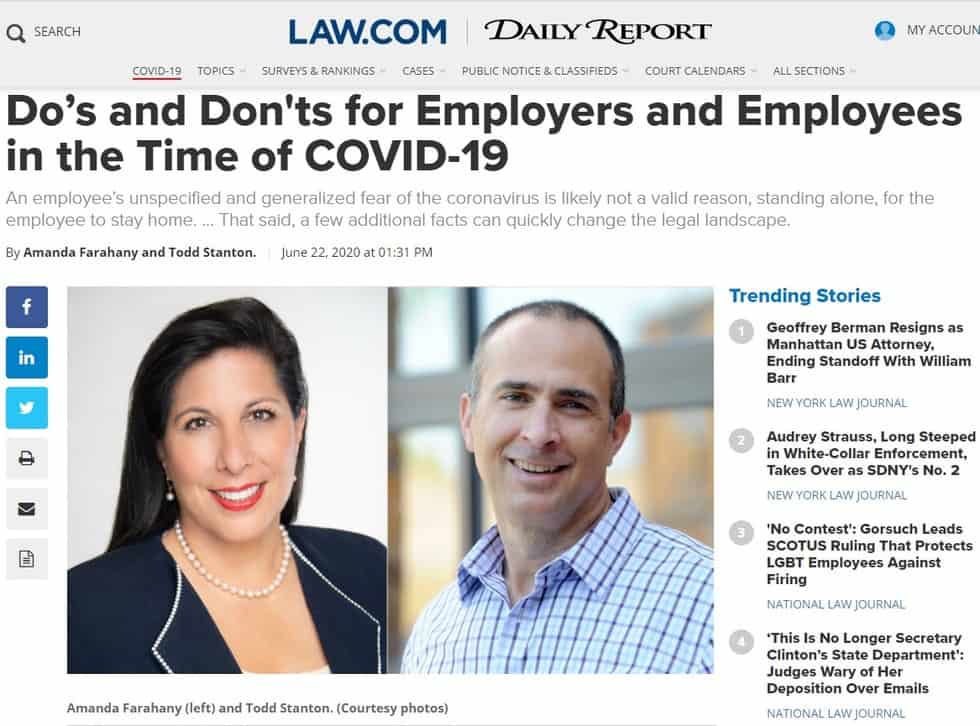Amanda Farahany co-wrote the article “Do’s and Don’ts for Employers and Employees in the Time of COVID-19” for the June 22 Daily Report. Todd Stanton of Stanton Law is the co-author.
The attorneys noted that an employee’s generalized fear of the coronavirus alone is likely not a valid reason for an employee to stay home as offices start to re-open. But they say that a few more facts can change the legal outlook.
Medical experts predict flare-ups and there is no vaccine or cure yet. So, some employees are apprehensive about going back to the workplace.
If an employee doesn’t want to return to work their reason might or might not be legally protected. The authors pointed out that “protected reasons include a disability as defined by the Americans with Disabilities Act or a serious health condition as defined by the Family & Medical Leave Act, each of which may entitle the employee to additional time away from work or other accommodation, such as the opportunity to continue to work from home.” The attorneys said that employers should also consider the employee’s paid sick leave entitlement under the Families First Coronavirus Response Act.
Advanced age is not a protected reason and does not entitle an employee to refuse to report to work. However, if an employee’s apprehension is based on a history of asthma, the ADA might compel an accommodation. FMLA may protect an employee living with and caring for someone who has tested positive for COVID-19.
The authors stressed that because each situation is fact-dependent, employers and employees should communicate clearly with each other about returning to the office.
The lawyers wrote that that the Families First Coronavirus Response Act allows for emergency paid sick and family leave.
The article notes that, “Even during this time of pandemic, interference and retaliation claims still apply. If an employee refuses to return to work for family reasons, such as taking care of children, and you terminate their employment, you could face a retaliation charge, even if the employee is not ultimately entitled to any benefits. Offering unpaid leave or administrative termination that allows the employee to collect unemployment benefits may be a viable compromise.”
The legal authors suggest that employers work with employees individually on return-to-work issues. This includes keeping an open mind about teleworking. But they also wrote, “If the employee is critical (to the company) and has no protected reason for wanting to stay home, you may need to draw the line.”
You can read the entire article on the website of the Daily Report and Law.com. (subscription required)


